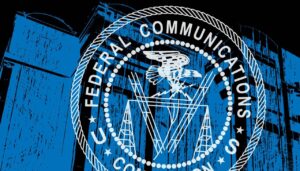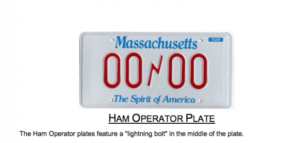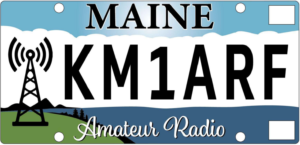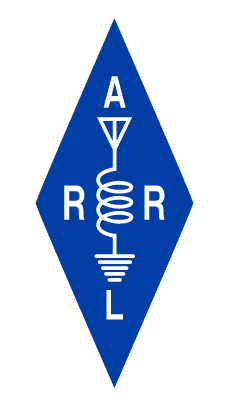 The arrl.org website has been updated to include instructions on how to report violations into our Volunteer Monitoring (VM) program. The page has also been updated since the text was from 2018 and talked about the future VM program.
The arrl.org website has been updated to include instructions on how to report violations into our Volunteer Monitoring (VM) program. The page has also been updated since the text was from 2018 and talked about the future VM program.
Regulatory & Advocacy
FCC Warns About Use of Ham Radio to Commit Crimes
BLOOMBERG NEWS–January 17, 2021, 10:11 AM ET
Licensed amateur and personal radio services shouldn’t be used to coordinate criminal acts, the FCC’s Enforcement Bureau warned after reports that some people were looking to radios as an alternative to social media platforms, which are being monitored by law enforcement following the deadly Jan. 6 raid on the U.S. Capitol.
“The Bureau reminds amateur licensees that they are prohibited from transmitting ‘communications intended to facilitate a criminal act’ or ‘messages encoded for the purpose of obscuring their meaning,” the agency said in a statement Sunday.
The licensees, which would include Citizens Band radios, Family Radio Service walkie-talkies, and General Mobile Radio Service, would face fines, seizure of their equipment and possible criminal prosecution.
See also: FCC Enforcement Advisory
FCC Reduces Proposed Amateur Radio Application Fee to $35
 From ARRL Web:
From ARRL Web:
12/30/2020 – The FCC has agreed with ARRL and other commenters that its proposed $50 fee for certain amateur radio applications was “too high to account for the minimal staff involvement in these applications.” In a Report and Order (R&O), released on December 29, the FCC scaled back to $35 the fee for a new license application, a special temporary authority (STA) request, a rule waiver request, a license renewal application, and a vanity call sign application. All fees are per application. There will be no fee for administrative updates, such as a change of mailing or email address.
This fall, ARRL filed comments in firm opposition to the FCC proposal to impose a $50 fee on amateur radio license and application fees and urged its members to follow suit.
As the FCC noted in its R&O, although some commenters supported the proposed $50 fee as reasonable and fair, “ARRL and many individual commenters argued that there was no cost-based justification for application fees in the Amateur Radio Service.” The fee proposal was contained in a Notice of Proposed Rulemaking (NPRM) in MD Docket 20-270, which was adopted to implement portions of the “Repack Airwaves Yielding Better Access for Users of Modern Services Act” of 2018 — the so-called “Ray Baum’s Act.”
“After reviewing the record, including the extensive comments filed by amateur radio licensees and based on our revised analysis of the cost of processing mostly automated processes discussed in our methodology section, we adopt a $35 application fee, a lower application fee than the Commission proposed in the NPRM for personal licenses, in recognition of the fact that the application process is mostly automated,” the FCC said in the R&O. “We adopt the proposal from the NPRM to assess no additional application fee for minor modifications or administrative updates, which also are highly automated.”
The FCC said it received more than 197,000 personal license applications in 2019, which includes not only ham radio license applications but commercial radio operator licenses and General Mobile Radio Service (GMRS) licenses.
The FCC turned away the arguments of some commenters that the FCC should exempt amateur radio licensees. The FCC stated that it has no authority to create an exemption “where none presently exists.”
The FCC also disagreed with those who argued that amateur radio licensees should be exempt from fees because of their public service contribution during emergencies and disasters.
“[W]e we are very much aware of these laudable and important services amateur radio licensees provide to the American public,” the FCC said, but noted that specific exemptions provided under Section 8 of the so-called “Ray Baum’s Act” requiring the FCC to assess the fees do not apply to amateur radio personal licenses. “Emergency communications, for example, are voluntary and are not required by our rules,” the FCC noted. “As we have noted previously, ‘[w]hile the value of the amateur service to the public as a voluntary noncommercial communications service, particularly with respect to providing emergency communications, is one of the underlying principles of the amateur service, the amateur service is not an emergency radio service.’”
The Act requires that the FCC switch from a Congressionally-mandated fee structure to a cost-based system of assessment. The FCC proposed application fees for a broad range of services that use the FCC’s Universal Licensing System (ULS), including the Amateur Radio Service, which had been excluded previously. The 2018 statute excludes the Amateur Service from annual regulatory fees, but not from application fees.
“While the Ray Baum’s Act amended Section 9 and retained the regulatory fee exemption for amateur radio station licensees, Congress did not include a comparable exemption among the amendments it made to Section 8 of the Act,” the FCC R&O explained.
The effective date of the fee schedule has not been established, but it will be announced at least 30 days in advance. The FCC has directed the Office of Managing Director, in consultation with relevant offices and bureaus, to draft a notice for publication in the Federal Register announcing when rule change(s) will become effective, “once the relevant databases, guides, and internal procedures have been updated.”
FCC to Require Email Addresses on Applications
From ARRL web:
12/02/2020 – Amateur radio licensees and candidates will have to provide the FCC with an email address on applications, effective sometime in mid-2021. If no email address is included, the FCC may dismiss the application as defective.
The FCC is fully transitioning to electronic correspondence and will no longer print or provide wireless licensees with hard-copy authorizations or registrations by mail.
A Report and Order (R&O) on “Completing the Transition to Electronic Filing, Licenses and Authorizations, and Correspondence in the Wireless Radio Services” in WT Docket 19-212 was adopted on September 16. The new rules will go into effect 6 months after publication in the Federal Register, which hasn’t happened yet, but the FCC is already strongly encouraging applicants to provide an email address. When an email address is provided, licensees will receive an official electronic copy of their licenses when the application is granted.
Under Section 97.21 of the new rules, a person holding a valid amateur station license “must apply to the FCC for a modification of the license grant as necessary to show the correct mailing and email address, licensee name, club name, license trustee name, or license custodian name.” For a club or military recreation station license, the application must be presented in document form to a club station call sign administrator who must submit the information to the FCC in an electronic batch file.
Under new Section 97.23, each license will have to show the grantee’s correct name, mailing address, and email address. “The email address must be an address where the grantee can receive electronic correspondence,” the amended rule will state. “Revocation of the station license or suspension of the operator license may result when correspondence from the FCC is returned as undeliverable because the grantee failed to provide the correct email address.”
MA Ham Radio License Plate Update
 From ema.arrl.org:
From ema.arrl.org:
Phil Temples, K9HI, received the following email on November 5, 2020 from Phyllis Burke, a supervisor employed by the Massachusetts Registry of Motor Vehicles in response to his question about the status of his ham radio license plate order:
“The RMV has out in a fix (sic) for these plates and will hopefully be done with in the next month or two. We will contact you when it is completed and order the plate. I apologize for the inconvenience.”
-Phyllis Burke <phyllis.burke@state.ma.us>.
[See: Massachusetts Department of Motor Vehicles is Not Processing Ham Operator Plate Applications]
Ham Operator Plate Renewal Problems at MA Registry of Motor Vehicles
 From ema.arrl.org:
From ema.arrl.org:
Updated October 28, 2020 at 10:00 AM
All Massachusetts hams with Ham Radio passenger special plates must renew their plate registration by the last day of November. Eastern MA ARRL staff are receiving reports of license plate renewal problems when attempting to use the online system. Apparently, the Registry of Motor Vehicles’ computer system doesn’t recognize the “slash” representing the “lightning bolt” icon. For example, the call sign WX1XXX is actually coded in the system as “WX1/XXX”; KX1X is “KX1/X.”
Renewal by phone DOES appear to work when you input the phone ID code listed on the application.
Another ARRL member adds, “I found that Registry services at AAA offices can overcome the issue. One must be a AAA member, and an appointment is necessary.”
This latest problem is in addition to the fact that MA RMV cannot process new Ham Radio Plate applications. See: https://nediv.arrl.org/2020/10/01/massachusetts-department-of-motor-vehicles-is-not-processing-ham-operator-plate-applications/.
FCC Proposes to Reinstate Fees for Amateur Radio Licensees—Talking Points
 Amateur radio licensees would pay a $50 fee for each amateur radio license application if the FCC adopts rules it proposed [this past August]. Included in the FCC’s fee proposal are applications for new licenses, renewal and upgrades to existing licenses, and vanity call sign requests. Excluded are applications for administrative updates, such as changes of address, and annual regulatory fees.
Amateur radio licensees would pay a $50 fee for each amateur radio license application if the FCC adopts rules it proposed [this past August]. Included in the FCC’s fee proposal are applications for new licenses, renewal and upgrades to existing licenses, and vanity call sign requests. Excluded are applications for administrative updates, such as changes of address, and annual regulatory fees.
The FCC proposal is contained in a Notice of Proposed Rulemaking (NPRM) in MD Docket 20-270, which was adopted to implement portions of the “Repack Airwaves Yielding Better Access for Users of Modern Services Act” of 2018 — the so-called “Ray Baum’s Act.”
—
“The fees Notice of Proposed Rulemaking was published in the October 15, 2020 Federal Register (https://tinyurl.com/yyk8f2yp). The deadline for comments is November 16, 2020, and the Reply comment deadline is November 30, 2020. As you discuss this [with your fellow amateurs,] or write articles for your newsletters, you might find the following suggestions helpful.” -David R. Siddall, K3ZJ [Full story]
Maine Amateur Radio Foundation Promoting New Ham Radio License Plate
 Maine Amateur Radio Foundation, Inc. is sponsoring a new ham radio vehicle registration plate. According to MARF, “purchasing this plate is an exciting way to show your enthusiasm for ham radio and to support it throughout the state of Maine.
Maine Amateur Radio Foundation, Inc. is sponsoring a new ham radio vehicle registration plate. According to MARF, “purchasing this plate is an exciting way to show your enthusiasm for ham radio and to support it throughout the state of Maine.
“With the funds raised through the sale of this new specialty plate, the Foundation will be working with you and others like you to train new hams, provide the necessary equipment for community activity and emergency communications support and assist in the maintenance of our repeater infrastructure,” writes MARF President Gary L. Gilman, N1ZNJ.
MARF set an original target date of fall 2020, but due to COVID-19 has moved back the date to the fall of 2021. “[MARF] will be working very hard to collect the necessary two thousand applications for the new registration plate to be issued. With your help, we will succeed in doing so.”
The initial application fee for the registration is $30, five dollars of which are to cover the administrative cost of processing the license plate application. The thirty dollar fee is non-refundable. If MARF fails to reach the necessary two thousand applications, all application fees will be treated as a donation to the Foundation, and the money will be used to fund successful grant applicants within Maine.
According to MARF, the State of Maine requires four thousand active registrations per year to maintain a specialty plate. They encourage all Maine amateurs to order a set for each vehicle that is registered.
For more information, see: https://drive.google.com/file/d/1URVdgh7GKzmkcNWlR_BF4ELNHfZ4C8np/view?usp=sharing
Massachusetts Department of Motor Vehicles is Not Processing Ham Operator Plate Applications
 From EMA ARRL Section News, September 30, 2020:
From EMA ARRL Section News, September 30, 2020:
For almost a year now, the Massachusetts Department of Motor Vehicles has been unable to process new “Ham Operator” special plate applications. According to one Western Massachusetts amateur who spoke to a DMV employee, “[…] the person I talked to informed me that this issue has been referred to the software company/vendor. No estimate has been placed on a resolution. She refused to tell me how many applications are being held up. I asked if there was anyone I could refer this to, she declined and said there was no one to escalate it to.”
At the request of Western MA Section Manager Ray Lajoie, KB1LRL, MA State Government Liaison Hank McCarl, W4RIG, contacted MA State Senator Bruce Tarr’s office to inquire. A legislative spokesperson from that office informed Hank that all special series and vanity license plates that have specific letter-number requests are currently impacted. However, plates for which numbers are sequentially assigned; e.g., 0001 through 9999, are being processed.
How many other amateurs in Massachusetts have been affected by this snafu at the DMV? Please write and let us know at <k1tw@arrl.org>
ARRL Seeks Changes in FCC Proposal to Delete 3.4 GHz Amateur Band
From the ARRL web:
09/26/2020 – ARRL met via telephone with FCC staff members this week to emphasize its opposition to the FCC Notice of Proposed Rulemaking (NPRM) in Docket 19-348 to delete amateur radio from the 3.3 – 3.5 GHz band. The FCC will take final action in the proceeding when it meets on September 30.
In comments filed earlier this year, ARRL urged that the secondary status for amateur radio in the band be continued. In a series of meetings with Commissioner legal advisors and staff members, ARRL explained how continued secondary use by radio amateurs will not impair or devalue use of this spectrum by future primary licensees, including those intending to provide 5G or other services. ARRL also stressed the various public-benefit uses of the spectrum by amateurs, including ongoing use of television and mesh networks on the west coast of the US as part of efforts to contain wildfires.
With regard to interference potential, ARRL stated that amateur radio operators using these bands are technically proficient and have a long history of sharing with primary users in this and other bands without causing interference.
FCC staff expressed concern that because amateur operations in the band are less clearly defined than those of other services also operating on a non-interference in the band, they would be difficult to locate should interference occur. ARRL Washington Counsel David Siddall, K3ZJ, noted that Section 97.303(g), an existing amateur rule, could be amended or used to craft a notification requirement, if the FCC concluded that relying on other methods would be insufficient. The FCC participants indicated that such a requirement, in place of deleting the secondary allocation, would be given serious consideration. (Section 97.303(g) contains specific frequency-sharing requirements for the 2200- and 630-meter amateur bands.)
Siddall also pointed out that the Amateur Television Network (ATN) filed an email with the Commission that included a letter from the California Governor’s Office of Emergency Services (Cal OES) describing amateur radio’s contributions, specifically calling out the need for 3.4 GHz access GHz and explaining why other bands are not sufficient.
ARRL also argued that, in any event, continued operation in the band should be permitted until and unless an actual potential for interference exists in a specific geographic area. ARRL said the FCC should not intentionally leave spectrum capacity unused during a build-out period that the Commission’s own proposal indicates will last for at least 12 years in some areas.
The record in the proceeding is now closed. Please be reminded that there can be no calls, emails, or filings to the FCC with regard to the issues under consideration until a final FCC Report and Order and Further Notice of Proposed Rulemaking is released. Release is currently expected to be within a few days after the Commission’s September 30 meeting. At that time, ARRL will evaluate the impact on amateur radio of the Commission’s decisions and consider what further action, if any, may be merited.
